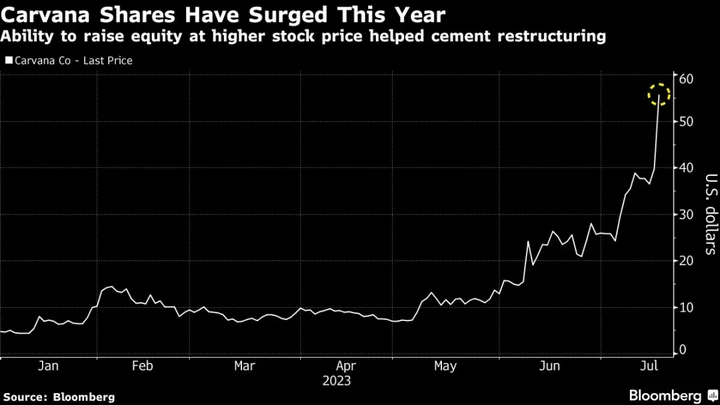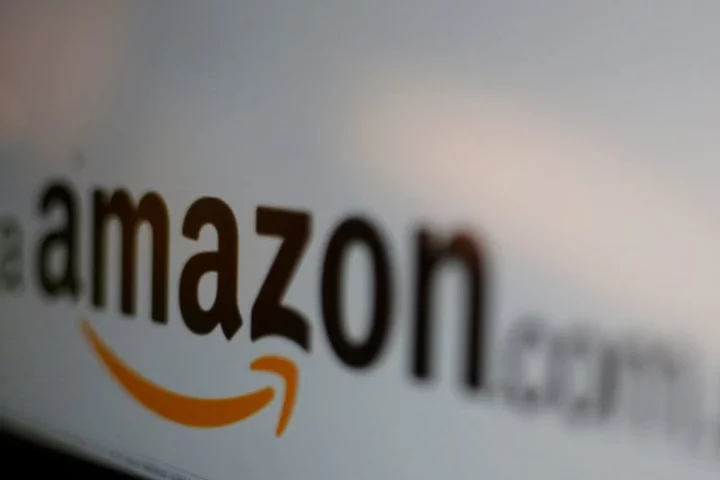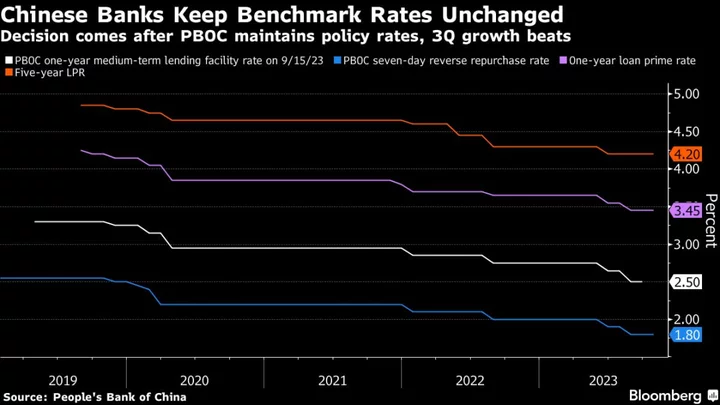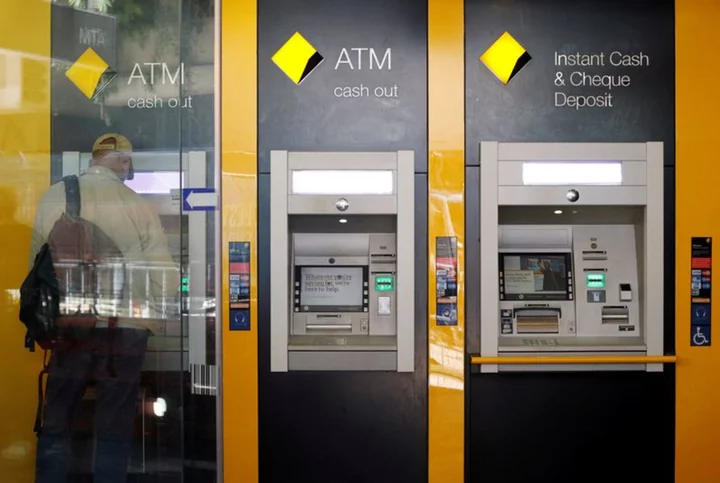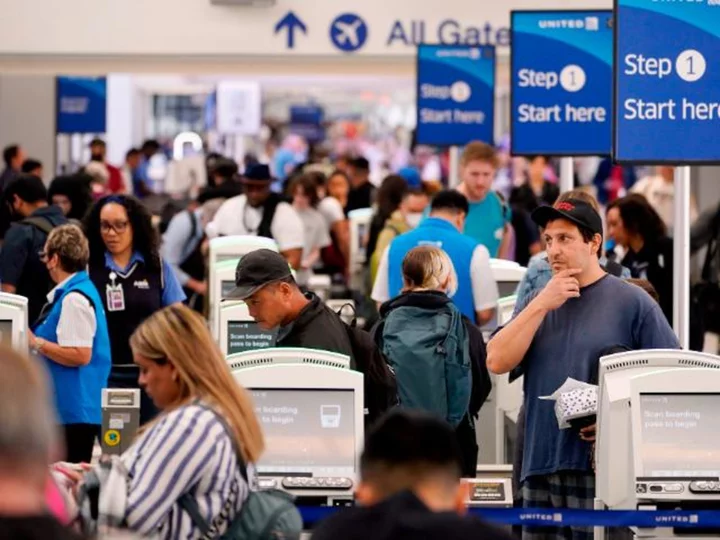A pact among Carvana Co. creditors to work together as they negotiated how to restructure the used-car dealer’s massive debt load reached a pivotal moment last month, during a meeting with Chief Executive Ernie Garcia.
Carvana’s stock had climbed back above $20 a share for the first time in eight months. All of a sudden, the prospect of a deal that would reduce the company’s debt, lower interest costs and provide it with additional liquidity looked within reach.
Huddled at Carvana’s headquarters just outside of Phoenix, senior executives from the company’s largest creditors — Apollo Global Management Inc., Ares Management Corp. and Pacific Investment Management Co. — sat down with Garcia and his advisers to lay the groundwork for a $5.2 billion debt restructuring, according to people with knowledge of the matter.
Underscoring the stakes, billionaire investment banker Ken Moelis — whose firm was advising Carvana — dialed in as well, said the people, who asked not to be identified because the discussions are private.
In exchange for a secured claim on the company’s assets and a new equity raise of at least $350 million partly financed by Garcia, the creditors agreed to reduce Carvana’s debt load by $1.2 billion, extend maturities and defer some interest payments. While the company is hardly out of the woods, the deal will at least provide more time for Carvana to try and turn things around.
The transaction was the product of a cooperation agreement that Carvana creditors signed last year to protect themselves from the kind of tactics that troubled companies — and their advisers — have increasingly used to pit lenders against each other and extract better terms in restructuring negotiations. Such agreements are becoming more common as companies that borrowed heavily during the easy-money era fall into distress.
“It’s a way for creditors to fight back against a company that’s trying to divide and conquer lenders,” said Damian Schaible, co-head of restructuring at law firm Davis Polk & Wardwell, who estimates around 80% of his creditor clients at least discuss cooperation agreements during restructuring negotiations, while around 20% ultimately go through with them. “Cooperation agreements used to be rare, now it’s rare if lenders don’t talk about them.”
Representatives for Apollo, Ares, Pimco and Moelis declined to comment on the discussions that led to the deal, while Carvana didn’t respond to requests seeking comment.
So-called priming transactions, where some lenders get closer to a company’s assets while others get pushed down, is a game Carvana’s creditors know well. Apollo was among the funds that were pushed down the repayment chain in a now-infamous debt deal for mattress maker Serta Simmons Bedding, while Pimco was among the money managers that primed other creditors when it offered new financing to aerospace company Incora.
Carvana’s debt documents would have easily allowed some lenders to get in front of the repayment line, the people familiar said. To protect their investment, the creditors insisted that any restructuring deal would need to include a secured claim on the company’s assets, including a car auction business Carvana acquired last year, they added.
After a week of intense negotiations, the company and lenders ultimately reached a deal that will see Carvana swap roughly $5.2 billion of unsecured debt for $4.4 billion of new senior secured notes. It is also repurchasing debt due 2025.
The new notes that mature as far out as 2031 pay interest in kind for at least the first year. Overall, Carvana could save $430 million annually in interest expense for the first two years as a result of the deal, the company said.
Read More: KKR’s Debt Deal Shows How Ugly Things Are Getting for Lenders
A hedge fund darling during the pandemic, Carvana was a growth machine that fed on low interest rates and investor demand for higher-yielding assets to go on a borrowing binge. The company raised billions of dollars in a push to change how used cars are sold, buying hundreds of thousands of preowned autos and luring shoppers with cheap loans. Its stock soared to $370 at its peak in 2021, before a new reality set in.
Tighter monetary policy and a rebound in auto production following supply-chain disruptions shifted the company into reverse. Carvana had added $1 billion in used vehicles in the months before prices peaked in the spring of 2022, only to be saddled with expensive inventory as car values declined. Then, as higher interest rates increased the cost of loans, sales dropped even more dramatically. The stock plunged below $4 a share at the end of last year.
Wednesday’s debt deal follows a tortured exchange the company proposed, sweetened and eventually pulled earlier this year.
Looking forward, Carvana still has work to do to get to sustainable profits. Its second quarter results Wednesday were better than expected, but a $105 million loss is a reminder that despite improvements the company has never turned an annual profit.
Carvana will need to further reduce debt to lower interest expense that amounted to more than $2,000 per car in the period. The company has pulled back on its expansion and reduced inventory by more than 50% as it seeks to steady the business.
Still, “it’s possible that further balance-sheet restructuring will be necessary as Carvana is expected to continue to burn cash,” Joel Levington, Bloomberg Intelligence director of credit research, wrote in a report Wednesday.
--With assistance from Rachel Butt and David Welch.
Author: Davide Scigliuzzo, Erin Hudson and Michael Tobin

